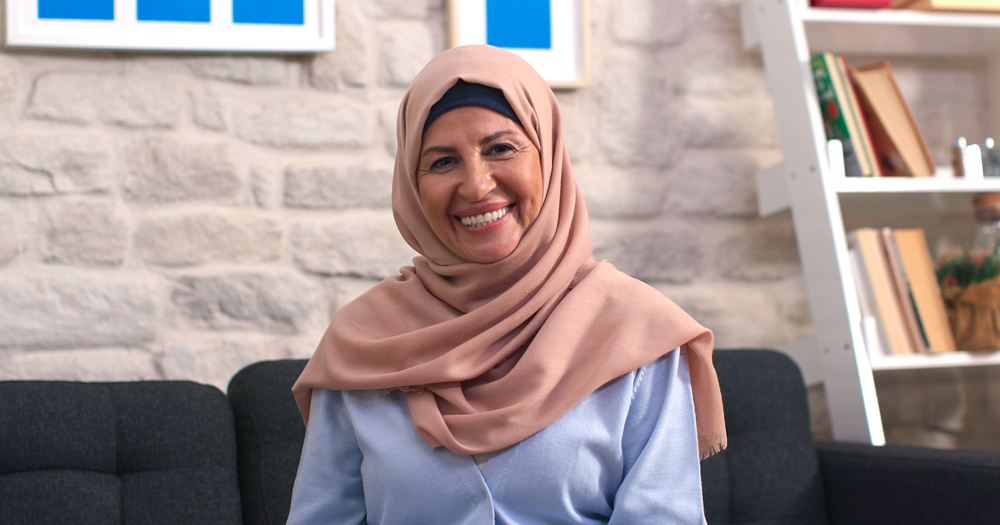Can We Ask Our Mother to Contribute to the Rent?
Answered by Shaykh Irshaad Sedick
Question
My question relates to the financial support that we, as four siblings (two boys and two girls), must provide for my elderly mother. I (her son) purchased a home right next to my current dwelling for my mother (my father is late) so that she can have her own space & afford her the right to lead her life freely, yet I am close enough to oversee her needs & check up on her regularly.
Is it permissible for us as children to ask her to contribute to a partial rental amount every month? We all contribute monthly to make up for the shortfall for her needs. There is also an option of her staying in her daughter’s home without a rental needed, but she will be alone (my sister is in Qatar) & she won’t be physically close to us.
Answer
In the Name of Allah, the Most Merciful and Compassionate. May Allah alleviate our difficulties and guide us to what pleases Him. Amin.
May Allah bless you and your family for your efforts to support your elderly mother and ensure her well-being. You take your responsibilities seriously and strive to fulfill your duty towards her.
In Islam, it is indeed a commendable act to support one’s parents, especially when they are in need. Your intention to provide a home for your mother near your residence so that you can oversee her needs and ensure her comfort reflects the values of kindness and compassion Islam promotes.
Providing for one’s parents, especially in their old age or time of need, is considered virtuous in Islam. Your mother is not obliged to provide for herself (to pay rent or any other basic expense). As children, you are responsible for supporting her financially and ensuring her well-being. Allah knows best. [Nawawi, al-Majmu‘]
Voluntary Contributions
It is more in line with Islamic values to treat this contribution as a voluntary act of kindness and support rather than a rental payment. You could approach your mother with the understanding that her contribution, if she’s willing and able, could cover some of the expenses associated with her living arrangement but that she is not obliged to contribute, and Allah knows best.
Balancing Kindness and Fairness: If you decide to discuss your mother’s contribution, it’s essential to do so to preserve her dignity and not burden her financially. The contribution should be reasonable and considerate of her circumstances.
Who Must One Support?
One must support the persons listed below, whether one is male or female, when one has money above one’s own living expenses and (if male) those of one’s wife (enough for a day and night, oneself taking priority over others, followed by one’s wife, who takes precedence over other family members):
(1) one’s father, father’s father, and on up;
(2) one’s mother, grandmothers (from either parent’s side), and on up (making no difference what their religion is since the religion of the family members is of no consequence in any of these rulings.
(3) and one’s children, male and female, their children, and down.
Money above one’s own living expenses and those of one’s wife means one is obliged to sell, if necessary, to fulfill the obligation to support the persons mentioned above, whatever must be sold when one has to pay debts, including real estate and other property. [Keller, Reliance of the Traveler]
What are the Conditions to Support?
Supporting the persons mentioned above is only obligatory when:
(a) there is poverty (a restriction applicable to both support of one’s ancestors and one’s descendants, meaning that it is necessary for it to be obligatory to support one’s ancestor that the ancestor be poor since if he has enough money, one need not support him;
(b) an incapacity to earn a living due to chronic illness, being a child, or mental illness.
This condition only applies to the support of one’s offspring, not one’s ancestors. If an impoverished ancestor such as one’s father could earn a living from a job suitable to him, it would nevertheless be obligatory for one to support him. He would not be called upon to gain a livelihood, because of the extreme respect of him, as opposed to one’s descendant, whom one need not support if the descendant can earn his own living, but who instead is called upon to do so himself.
The upshot is that the support of whoever has enough money for their own support is not obligatory upon another family member, whether the former is mentally ill or sane, a child or adult, chronically ill or well because he does not deserve charity in such a condition.
A descendant able to earn an adequate living does not deserve support from his ancestors. [ibid.]
I pray this is of benefit and that Allah guides us all.
[Shaykh] Irshaad Sedick
Checked and Approved by Shaykh Faraz Rabbani
Shaykh Irshaad Sedick was raised in South Africa in a traditional Muslim family. He graduated from Dar al-Ulum al-Arabiyyah al-Islamiyyah in Strand, Western Cape, under the guidance of the late world-renowned scholar Shaykh Taha Karaan.
Shaykh Irshaad received Ijaza from many luminaries of the Islamic world, including Shaykh Taha Karaan, Mawlana Yusuf Karaan, and Mawlana Abdul Hafeez Makki, among others.
He is the author of the text “The Musnad of Ahmad ibn Hanbal: A Hujjah or not?” He has served as the Director of the Discover Islam Centre and Al Jeem Foundation. For the last five years till present, he has served as the Khatib of Masjid Ar-Rashideen, Mowbray, Cape Town.
Shaykh Irshaad has thirteen years of teaching experience at some of the leading Islamic institutes in Cape Town). He is currently building an Islamic online learning and media platform called ‘Isnad Academy’ and has completed his Master’s degree in the study of Islam at the University of Johannesburg. He has a keen interest in healthy living and fitness.
